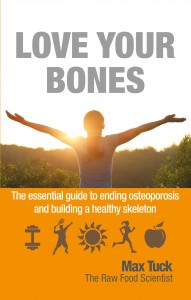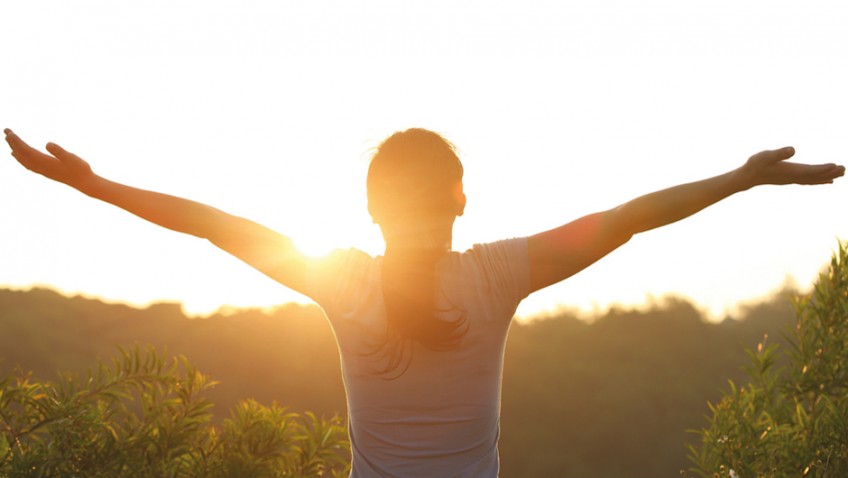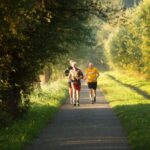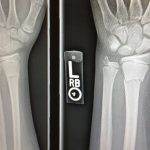Osteoporosis is often referred to as ‘the silent killer’ because it can be present for many years, often undetected, until a bone suddenly breaks; usually, in women, the hip. Once considered to be a disease only experienced by post-menopausal women, up to one in 8 men over the age of 50 might now be affected.
Of those who sustain a hip fracture, only 30% can expect to resume a normal life, and the cost in personal and financial terms can be devastating.
It therefore follows that to avoid being one of the increasing number of people suffering the devastation that this disease can bring, prevention is the key. However, if you have already been diagnosed, please do not despair, since bone mass can be improved in both sexes, and at any age.
For a number of years, I have lived by, and taught, the principles of the “Eight Pillars of Health”; these being nutrition, exercise, water/hydration, rest, sunshine, stress relief, positive attitude, and life-purpose. In relation to the prevention and reversal of osteoporosis, these principles can all be considered as important as each other; we are only as strong as our weakest link.
Let’s look at nutrition for a start. For as long as I can remember, I have been told that we need to drink milk and eat cheese if we are to stand a chance of avoiding this insidious disease. But wait! Northern Europeans have the highest dairy consumption and calcium intake in the Western world, but also have the highest incidence of osteoporosis. Could there be a correlation?
It transpires that there is. In my latest book, Love Your Bones, I relate how dairy products are acidic residue foods that are low in magnesium – a mineral essential for bone health.
Dairy products are not the great creator of strong bones that we have been led to believe. According to a study published in the Journal of Gerontology in 2000, dairy product consumption seems to be positively associated with hip fractures when studying trends in large population groups. Interestingly, whilst the bones of women in the countries with the highest dairy product consumption are, on average, denser than those in countries with low dairy consumption, research published in the journal Clinical Orthopaedics shows that this does not appear to protect them from fractures.
The ratio of animal protein consumption to plant protein consumption is a much more accurate determination of fracture risk. The more protein you derive from a plant-based diet, the lower your risk.
We need to obtain our bone-building minerals from leafy green vegetables, rather than dairy products. There are many other nutrients, vital for bone health, that we access from green foods, such as boron, strontium, silicon, manganese, copper, zinc, germanium, vitamin K2, vitamin B6, folic acid, resveratrol and vitamin C.
The best dietary regime for healthy bones is a plant-based diet with a strong emphasis on fresh, dark green foods and ripe, dark-skinned berries.
On to exercise –love it or hate it, it’s essential for bone strength, but the type of exercise you do really does matter. The key, therefore is to exercise for the improvement of bone strength such as lifting weights, regular sprint training, yoga, and simply find something you enjoy doing that motivates you.
Key to do some sort of exercise fives time a week and do some exercise outdoors in the sun, so that you boost your vitamin D levels at the same
What you drink is important for bone health. If you drink fizzy drinks, caffeine and alcohol, your bone health will suffer greatly. Caffeine increases the stress hormones which in turn has a detrimental effect on bone building.
Canned fizzy drinks – well, just don’t even go there. The sugar content alone should alert you to the fact that this is not appropriate stuff to be drinking, and the aluminium content of the can itself inhibits bone formation.
Rest is essential for bone health, since good quality sleep allows us to experience natural surges of human growth hormone (HGH), which stimulates bone formation. HGH declines rapidly with age, so anything we can do to prevent its demise will be highly beneficial not just for bone health, but all aspects of anti-ageing.
On to sun exposure. We all know that vitamin D, manufactured in the skin on exposure to UV light, is essential to bone health, but did you know that vitamin D cannot be made in the skin between mid October and mid March in the UK, even if it were warm enough to go outside?
We have become so paranoid of sun exposure as a result of fears around malignant melanoma that we seem to have taken it to extremes. Exercise caution of course, but sunblock can cause more problems than it solves. Supplementation with vitamin D, together with vitamin K2, is recommended for bone health if you don’t get sufficient sun exposure.
 Stress negatively affects bone health in so many ways. The stress hormone cortisol directly inhibits our osteoblasts – cells which build bone. High sugar diets have the same effect. Cortisol also inhibits DHEA, a hormone which is essential for building good quality bone.
Stress negatively affects bone health in so many ways. The stress hormone cortisol directly inhibits our osteoblasts – cells which build bone. High sugar diets have the same effect. Cortisol also inhibits DHEA, a hormone which is essential for building good quality bone.
Finally, why might our bones be dependent on the cultivation of a positive attitude, or indeed finding our life purpose? It’s simple – happy, passionate people following their dream are less stressed. Less stress means less of an inhibitory effect on bone building. Win-win!
Max Tuck, aka the ‘Raw Food Scientist’ is a Hippocrates Institute-trained health educator as well as a practising vet and the author of Love Your Bones www.loveyourbones.info





